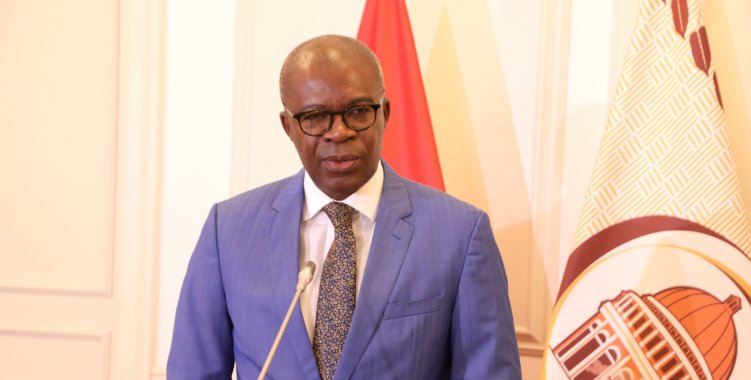Dr Manuel António Tiago Dias, the governor of the National Bank of Angola (BNA), conducted an institutional visit to the Catinton Market, one of the biggest and most recognisable informal trade hubs in the nation, as part of initiatives to advance financial inclusion and the digitisation of payments in Angola.
Dr Cristina Caniço, the director of the Payment Systems Department, and Dr Edilson Pimenta, the director of the Financial Inclusion Department, accompanied the visit.
The purpose of the visit, which was announced on Tuesday, was to assess the extent to which the population operating in informal contexts has embraced digital financial services.
Having presented the work done at Catinton since August 2024, when the company strengthened its presence in this market with a daily intervention of MONEY agents and firefighters, responsible for proactively attracting customers, traders, and stockists, UNITEL Money accompanied the BNA delegation with the presence of its Chairman of the Executive Committee, Gulamo Nabi, and the Administrator of the Financial Department, Manuel Passos.
The initiative seeks to increase security, control, and convenience by enabling any citizen to purchase, pay, and receive directly from the market using just a mobile phone number.
Highlight of UNITEL Money agents’ operational dynamics
The CEO of UNITEL Money took the opportunity to highlight the MONEY agents’ operational dynamics, which are the real cornerstone of the country’s mobile money growth.
In addition to discussing the opportunities and difficulties that agents deal with on a daily basis, such as managing liquidity and the customer loyalty programme, he referred to their critical role in creating an inclusive digital payments ecosystem.
With a focus on communities that have historically been shut out of the formal financial system, the visit to Catinton reaffirms UNITEL Money’s dedication to being present where Angolans live, buy, and sell; helping to formalise the informal economy; and utilising digital solutions to benefit the populace.
Within the framework of the national strategy for financial inclusion, this action also demonstrates the close and direct collaboration between UNITEL Money and the National Bank of Angola.
It also demonstrates that it is possible to close the gap between financial services and the actual needs of the populace through innovation and active local presence.
Reports on mobile money adoption in Angola
GSMA claims that the prevalence of mobile money in Angola is “very low.” This indicates that, despite Angola’s comparatively robust economy and established banking system, mobile money adoption, activity, and accessibility are limited in the country.
Mobile money has drawn a lot of interest and investment in other parts of Africa; in 2022, more than 150 services processed more than $800 billion in transactions.
It hasn’t in Angola. Because of this, there is a sizable financial inclusion gap in the unbanked population of the informal economy of Angola.
Mobile money services have reduced gender inequality and expanded financial inclusion in other African nations. Women have more opportunities to manage their finances thanks to mobile money.
However, the World Bank claims that Angola performs poorly on a number of financial inclusion metrics, partly because of the ongoing divide between those who have access to financial services and those who do not.
The gap between the unbanked, underbanked, and fully banked could close if Angola were to implement an efficient mobile money service, hence enhancing financial inclusion in the informal sector.
















